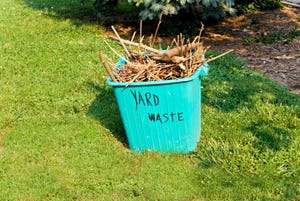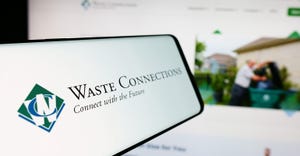Starbucks to Stop Using Plastic Straws
The company will replace plastic straws with new, strawless drink lids.
Starbucks Coffee Company announced it will eliminate single-use plastic straws from its more than 28,000 company operated and licensed stores by making a strawless lid or alternative-material straw option available. Starbucks anticipates the move will eliminate more than one billion plastic straws per year from Starbucks stores.
Starbucks has designed, developed and manufactured a strawless lid, which will become the standard for all iced coffee, tea and espresso beverages. The lid is currently available in more than 8,000 stores in both the U.S. and Canada for select beverages including Starbucks Draft Nitro and Cold Foam. The lid is also being piloted for Nitro beverages in additional markets including China, Japan, Singapore, Thailand and Vietnam. In addition, Starbucks will begin offering straws made from alternative materials—including paper or compostable plastic—for Frappuccino blended beverages and by request for customers who prefer or need a straw.
“For our partners and customers, this is a significant milestone to achieve our global aspiration of sustainable coffee, served to our customers in more sustainable ways,” said Kevin Johnson, president and CEO of Starbucks, in a statement.
Customers in Seattle and Vancouver will be the first to see the strawless lids implemented, starting this fall, with phased rollouts within both the U.S. and Canada to follow in FY19. A global rollout of the strawless lid will follow, beginning in Europe where strawless lids will arrive in select stores in France and the Netherlands, as well as in the U.K. just as the market expands its 5p paper cup charge to 950 stores, to further promote reusability.
“Starbucks’ goal to eliminate plastic straws by 2020 from their stores globally represents the company’s forward thinking in tackling the material waste challenge in totality,” said Erin Simon, director of sustainability research and development and material science at World Wildlife Fund, U.S., in a statement. “Plastic straws that end up in our oceans have a devastating effect on species. As we partner with Starbucks in waste reduction initiatives such as Next Gen Consortium Cup Challenge and WWF’s Cascading Materials Vision, we hope others will follow in their footsteps.”
Starbucks has a 30-year track record of focusing on sustainability across all aspects of its business, including achieving 99 percent ethically sourced coffee. In addition to this announcement, Starbucks has previously committed $10 million to develop and help bring to market a fully recyclable and compostable hot cup, in partnership with Closed Loop Partners, through the NextGen Cup Consortium and Challenge.
As Johnson outlined in his presentation to investors at the Oppenheimer Consumer Conference in June, the company is focused on adapting to rapidly changing consumer trends with cold beverages accounting for more than 50 percent of Starbucks' beverage mix in the U.S., up from 37 percent just five years ago. The movement to eliminate single-use plastic straws has been gaining tremendous momentum globally, with consumers showing increased concern for the greater issue of waste, of which straws is just a part. That’s why Starbucks recognizes the work ahead to build on its long history in sustainability, which includes:
Achieving 99 percent ethically sourced coffee.
Trialing a 5p paper cup charge in London, which will be expanded to 950 stores in the U.K. later this month, to promote reusability.
Offering a discount to any customer who brings a reusable cup or tumbler to company-owned stores around the world.
Starbucks cups contain 10 percent post-consumer fiber, introduced in 2006 and a number the company expects to double by 2022.
Building more than 1,500 LEED-certified (Leadership in Energy and Environmental Design) stores in 20 markets, including all 50 states and Puerto Rico, the largest green retailer in its sector.
Starbucks purchases Renewable Energy Certificates, currently covering 62 percent of electricity usage globally, with a goal of reaching 100 percent globally by 2020.
Expansion of the FoodShare program that donates unsold food to food banks around the country.
About the Author
You May Also Like


